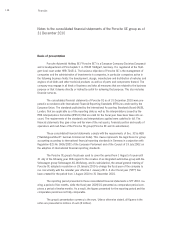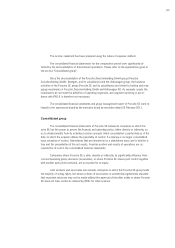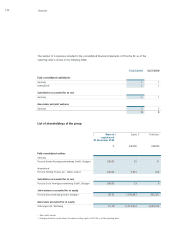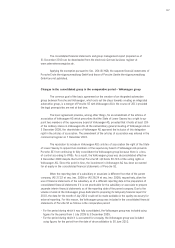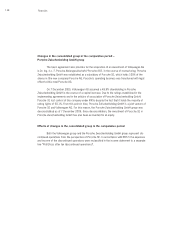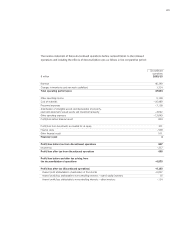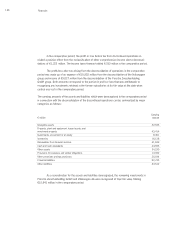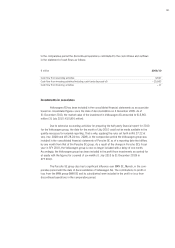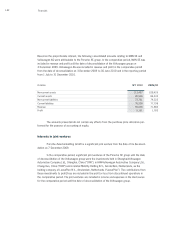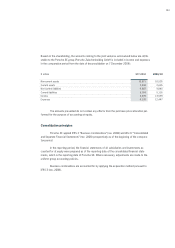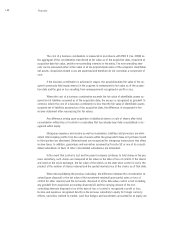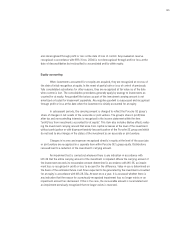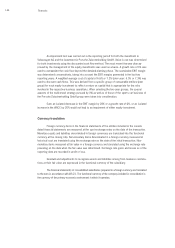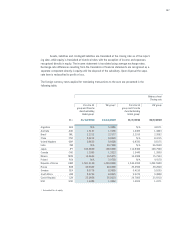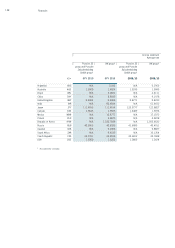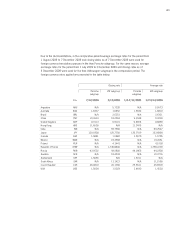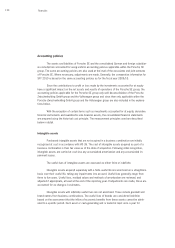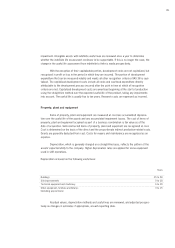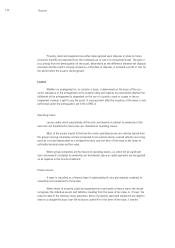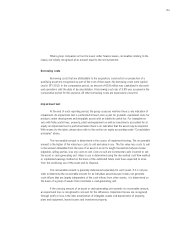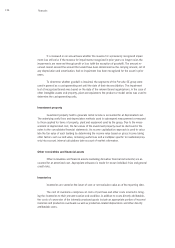Porsche 2010 Annual Report Download - page 146
Download and view the complete annual report
Please find page 146 of the 2010 Porsche annual report below. You can navigate through the pages in the report by either clicking on the pages listed below, or by using the keyword search tool below to find specific information within the annual report.Financials
144
The cost of a business combination is measured in accordance with IFRS 3 (rev. 2008) as
the aggregate of the consideration transferred at fair value as of the acquisition date, measured at
acquisition-date fair value, and the non-controlling interests in the entity. The non-controlling inter-
ests can be measured either at fair value or at the proportionate share of the acquiree’s identifiable
net assets. Acquisition-related costs are expensed and therefore do not constitute a component of
cost.
If the business combination is achieved in stages, the acquisition-date fair value of the ac-
quirer’s previously held equity interest in the acquiree is remeasured to fair value as of the acquisi-
tion date and the gain or loss resulting from remeasurement recognized in profit or loss.
Where the cost of a business combination exceeds the fair value of identifiable assets ac-
quired net of liabilities assumed as of the acquisition date, the excess is recognized as goodwill. In
contrast, where the cost of a business combination is less than the fair value of identifiable assets
acquired net of liabilities assumed as of the acquisition date, the difference is recognized in the
income statement after reassessing the fair values.
Any difference arising upon acquisition of additional shares or sale of shares after initial
consolidation without loss of control in a subsidiary that has already been fully consolidated is rec-
ognized within equity.
Intragroup expenses and income as well as receivables, liabilities and provisions are elimi-
nated. Intercompany profits from the sale of assets within the group which have not yet been resold
to third parties are eliminated. Deferred taxes are recognized for intragroup transactions that affect
income taxes. In addition, guarantees and warranties assumed by Porsche SE or one of its consoli-
dated subsidiaries in favor of other consolidated subsidiaries are eliminated.
In the event that control is lost and the parent company continues to hold shares in the pre-
vious subsidiary, such shares are measured at fair value on the date of loss of control. If the shares
are listed on the stock exchange, the fair value of the shares on the date when control is lost is the
product of the number of shares retained and the quoted market price of the shares as of that date.
When deconsolidating the previous subsidiary, the difference between the consideration re-
ceived (upon disposal) or the fair value of the investment retained (upon partial sales or loss of
control for other reasons) and the net assets disposed of at the date when control is lost (including
any goodwill from acquisition accounting disposed of) and the carrying amount of the non-
controlling interests disposed of as of the date of loss of control is recognized in profit or loss.
Income and expenses recognized directly in the previous subsidiary’s equity for foreign currency
effects, securities marked to market, cash flow hedges and investments accounted for at equity are


